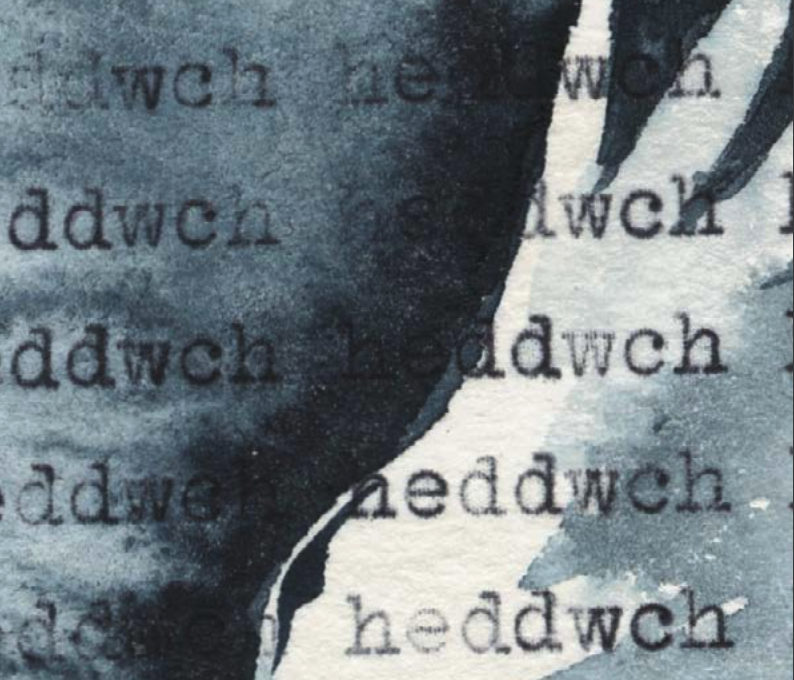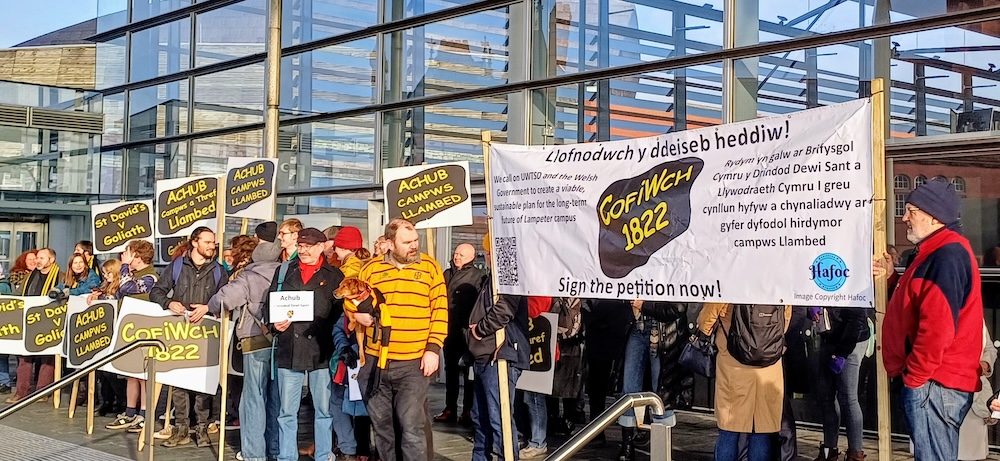A new report from Academi Heddwch Cymru argues that Wales can improve its governance and develop a distinctive national identity by becoming a Nation of Peace.
Peace appears to be in short supply. Despite the recent – fragile – ceasefires in Gaza and Lebanon, and the apparent end to the civil war in Syria, conflicts abound. These range from major inter-state conflicts such as that in Ukraine to long-standing insurgencies such as that of Boko Haram in Nigeria. Peace, however, is about more than the absence of war. It is about societies living without fear, about creating social resilience while preserving individual rights, and about promoting social justice, fairness, respect and equality. This is known as positive peace. But this broader understanding of peace also appears to be under threat. From the 6 January 2021 attack on the Capitol to the summer riots in the UK, tolerance within society appears to be diminishing and fear increasing.
What can we in Wales do about this? Addressing this question, Academi Heddwch Cymru – Wales’ national peace institute and the first of its kind in the UK – has recently released a major report arguing that Wales can lead the UK and join other European nations such as Norway, Sweden and Switzerland in becoming a ‘Nation of Peace’. Peace is seen by these states as something that evolves as part of a national dialogue and its hallmark is the manner in which they conduct their relationships, internally and on the international stage. It is about dialogue as a way of life, about being open to different perspectives and beliefs, and about seeking cooperation rather than conflict with others, whether they are like-minded or not.
Peace, however, is about more than the absence of war. It is about societies living without fear, about creating social resilience while preserving individual rights, and about promoting social justice, fairness, respect and equality.
Becoming a Nation of Peace would have a positive impact upon how we govern ourselves as a devolved nation with diverse communities and interests. It would also provide Wales with a distinct identity on the international stage and enhance its international profile, as it has for other ‘peace nations’. But perhaps above all, Wales as a nation and its Government should promote peace because it has a value in its own right.
Being a Nation of Peace, however, is not just a series of policy initiatives for a government to enact and targets for it to reach, but a direction of travel which involves the whole of society. This includes local government and civil society organisations, many of which are already part of broader international coalitions such as the ‘Mayors for Peace’ initiative.
It is also about how a nation sees itself and presents itself to others. For more than a century, the people of Wales have undertaken innovative and sometimes world-leading initiatives to promote peace. One example of this is the Welsh Women’s Peace Petition, the centenary of which we have just celebrated. With devolution, the scope for further innovation and projecting a clearer identity as a Nation of Peace has vastly increased. Policies such as the Well-being of Future Generations Act and commitments to net zero and anti-racism demonstrate that Wales is capable of transformative leadership.
Innovative. Informed. Independent.
Your support can help us make Wales better.
Internationally, the Welsh Government is already explicitly committed to establishing Wales as a globally responsible nation and there can be no more globally responsible act than promoting peace. Although the UK Government has reserved powers on foreign, defence, security and international development policy, there is still scope for the Welsh Government to act internationally. Not least, the Welsh Government has powers over education and culture, both of which can be used to establish dialogues and promote peace. It can also add its voice to global debates, as it has recently over Gaza. The Welsh Government has provided practical support for international development such as the ‘Wales and Africa’ programme, while its 2019 Refugee and asylum seeker plan, which aims to establish Wales as the first ‘Nation of Sanctuary’, demonstrates how innovative thinking can create opportunities to act internationally.
Wales’s international activities are not limited to the Government in Cardiff. Civil society organisations, universities and schools (especially through the Taith programme) amongst others have opportunities to act internationally and can play a role in promoting peace.
Being a Nation of Peace, therefore, suggests the need for a complex and nuanced relationship with the UK military and the defence industry.
Within Wales, devolution provides significant powers to advance positive peace. Successive Welsh Governments have introduced legislation which can be seen as providing the basis for Wales as a Nation of Peace while, in the context of the UK Government’s post-Brexit repeal of the Human Rights Act (1998) and the introduction in 2022 of a Bill of Rights to the Westminster Parliament, the Senedd has been proactively exploring a discretely Welsh approach to protecting and upholding human rights for all people living in Wales.
Devolution also provides powers over education, which creates opportunities for developing positive peace within schools, while organisations such as Adult Learning Wales provide opportunities to make peace part of post-16 education. Although university research is not a devolved responsibility, there is evidence that peace research – broadly understood – does exist in Welsh universities and mechanisms exist in Wales which would allow it to be developed and promoted more effectively.
Wales’s disproportionate contribution to the UK’s military and its defence industrial base might appear to be at odds with the aspiration for it to be a Nation of Peace. However, European nations recognised as ‘peace nations’ (in particular Norway, Sweden and Switzerland) maintain substantial militaries and defence industries, and all have mandatory military conscription for young people. Being a Nation of Peace, therefore, suggests the need for a complex and nuanced relationship with the UK military and the defence industry.
Robust debate and agenda-setting research.
Support Wales’ leading independent think tank.
Following the example set by the Welsh Government’s 5 ‘Ways to Well-Being’, 6 ‘Ways to Peace’ can provide the basis for a national conversation about becoming a Nation of Peace:
- Good relations with neighbours.
- Good governance including low levels of corruption, the free flow of information and high levels of media literacy.
- Social justice, including equitable distribution of resources and respect for human rights.
- Sound and ethical business environment with high levels of human capital.
- The promotion of those cultural values that respect difference and promote tolerance.
- Protection of the natural environment.
Academi Heddwch Cymru’s report suggests that this framework should lead to a National Manifesto for Peace, which would have a legislative basis similar to that of the Well-being of Future Generations Act. In developing this, Wales can lead the world.
All articles published on the welsh agenda are subject to IWA’s disclaimer. If you want to support our work tackling Wales’ key challenges, consider becoming a member.





